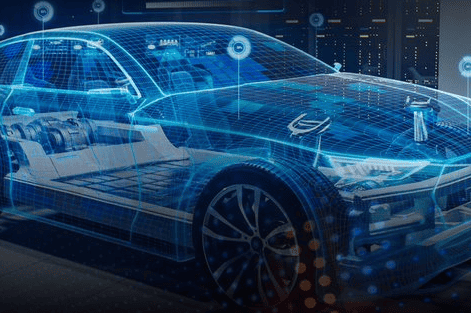
The global push towards carbon neutrality has significantly increased the development and adoption of electric vehicles (EVs). Beyond their eco-friendly promise, EVs are introducing remarkable innovations in software technology, from Artificial Intelligence (AI) to the Internet of Things (IoT). This post will delve into some of the cutting-edge software technologies powering the modern electric vehicle revolution, including features found in notable models like the Atto 3 and Vauxhall Mokka E.
Table of Contents
Driving Autonomy with Artificial Intelligence
AI is at the forefront of electric car technology, providing advancements that go far beyond traditional vehicular functionality. These developments have thrust the car into the realm of “smart devices”, creating a synergy between the driver, the vehicle, and the surrounding environment.
Among AI’s primary contributions to EVs is the development of Autonomous Driving Systems (ADS). These sophisticated systems utilise complex AI algorithms that enable vehicles to navigate roads, interpret traffic conditions, and make decisions that would typically require human judgement.
Take, for instance, the Atto 3, an innovative electric vehicle equipped with an advanced ADS. It uses AI to analyse real-time data from cameras and sensors distributed around the vehicle, creating a comprehensive understanding of the vehicle’s environment. This data-driven insight allows the Atto 3 to predict potential hazards, efficiently navigate routes and adapt to changing traffic conditions, making for a safer, more comfortable driving experience.
Intelligent Energy Management
AI also plays a crucial role in energy management within electric cars. With the challenges of range anxiety still lingering, efficient energy consumption is an integral part of an EV’s design. AI algorithms can predict energy needs based on a variety of factors, including route, weather conditions, and driving habits, to optimise the vehicle’s range.
A notable example is the Vauxhall Mokka E, a model that harnesses AI for efficient energy use. Its intelligent energy management system uses AI to analyse driving style, terrain, and climate conditions, adjusting the energy consumption of various components like the air conditioning or heating system accordingly. As a result, drivers of the Mokka E enjoy maximised range without compromising comfort.
Connectivity Through the Internet of Things (IoT)
Another transformative trend in electric car software technology is the integration of IoT. By connecting vehicles to a broader network of devices via the internet, IoT opens up endless possibilities for enhancing user experiences, improving safety measures, and introducing new functionalities.
IoT facilitates real-time monitoring and predictive maintenance, reducing unexpected breakdowns and prolonging the lifespan of EVs. Sensors embedded within the vehicle can monitor wear and tear on components, with the data relayed to drivers or mechanics. Through continuous monitoring, issues can be detected and resolved before they develop into significant problems.
Moreover, IoT enables enhanced infotainment systems in electric cars, seamlessly integrating with the user’s digital life. Drivers can control their home IoT devices directly from their car, such as turning on their home heating system or checking their home security system.
Smart Charging Systems
Electric vehicles need to be charged, and IoT technology is integral to making this process as seamless as possible. Smart charging systems can automatically adjust the charge rate based on the grid’s capacity, the car’s battery level, and even the current electricity tariff.
Furthermore, these systems can integrate with the user’s schedule, starting and stopping the charging process when it’s most convenient or cost-effective. For instance, charging could automatically commence in off-peak hours when electricity is cheaper, or pause if a home’s energy demand peaks due to other appliances.
The Future of Software Innovations in Electric Cars
The convergence of AI and IoT in the realm of electric cars holds great promise for future software innovations. Future developments could lead to entirely autonomous vehicles, increased energy efficiencies, and further integration with other smart devices.
As technologies like AI and IoT continue to evolve, vehicles like the Atto 3 and Vauxhall Mokka E will become increasingly interconnected, intelligent, and efficient. The future of electric cars promises to be as thrilling as it is sustainable, thanks to these cutting-edge software innovations.
Cybersecurity: Protecting Connected Vehicles
As vehicles become more connected through AI and IoT, protecting them from potential cyber threats is becoming an important concern. Cybersecurity measures in EVs go beyond traditional antivirus software. They incorporate advanced machine learning algorithms to identify and mitigate threats in real-time. For example, intrusion detection systems can identify unusual network traffic that may indicate a cyber-attack, while secure firmware over-the-air updates can ensure that a vehicle’s software is always up-to-date with the latest security patches. This technology doesn’t just protect the vehicle’s operational integrity; it also safeguards the privacy and personal data of the users.
Over-the-air (OTA) Updates: Continuous Improvement
Finally, one of the most exciting software innovations in electric cars is the implementation of over-the-air (OTA) updates. Previously, car owners had to take their vehicles to a service centre for any software upgrades or patches. Today, OTA updates can be delivered directly to the vehicle, allowing for continuous improvement of the vehicle’s software systems.
The ability to upgrade the vehicle’s features and performance after the point of sale is a game-changer in the automotive industry. With OTA updates, electric vehicles like the Atto 3 and the Vauxhall Mokka E can continually enhance their performance, safety, and convenience features, bringing added value and a better driving experience to the users. This remarkable innovation speaks volumes about the potential of software technology in redefining the future of electric mobility.

